Related Research Articles
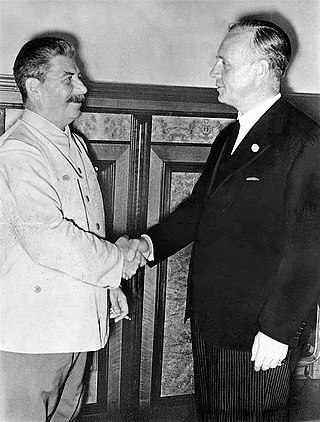
The Molotov–Ribbentrop Pact was a non-aggression pact between Nazi Germany and the Soviet Union that enabled those powers to partition Eastern Europe between them. The pact was signed in Moscow on 23 August 1939 by German Foreign Minister Joachim von Ribbentrop and Soviet Foreign Minister Vyacheslav Molotov and was officially known as the Treaty of Non-Aggression between Germany and the Union of Soviet Socialist Republics. Unofficially, it has also been referred to as the Hitler–Stalin Pact, Nazi–Soviet Pact or Nazi–Soviet Alliance.

Nazi Germany was the German state between 1933 and 1945, when Adolf Hitler and the Nazi Party controlled the country, transforming it into a dictatorship. Under Hitler's rule, Germany quickly became a totalitarian state where nearly all aspects of life were controlled by the government. The Third Reich, meaning "Third Realm" or "Third Empire", alluded to the Nazi claim that Nazi Germany was the successor to the earlier Holy Roman Empire (800–1806) and German Empire (1871–1918). The Third Reich, which Hitler and the Nazis referred to as the Thousand-Year Reich, ended in May 1945 after just 12 years when the Allies defeated Germany, ending World War II in Europe.
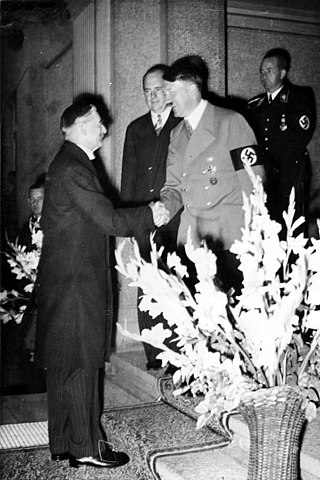
Appeasement, in an international context, is a diplomatic policy of making political, material, or territorial concessions to an aggressive power to avoid conflict. The term is most often applied to the foreign policy of the British governments of Prime Ministers Ramsay MacDonald, Stanley Baldwin and Neville Chamberlain towards Nazi Germany and Fascist Italy between 1935 and 1939. Under British pressure, appeasement of Nazism and Fascism also played a role in French foreign policy of the period but was always much less popular there than in the United Kingdom.
The events preceding World War II in Europe are closely tied to the bellicosity of Fascist Italy, Nazi Germany, and Imperial Japan, as well as the Great Depression. The peace movement led to appeasement and disarmament.
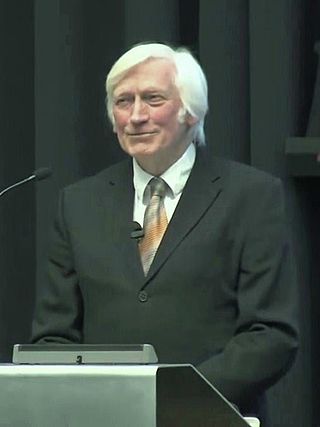
Richard James Overy is a British historian who has published on the history of World War II and Nazi Germany. In 2007, as The Times editor of Complete History of the World, he chose the 50 key dates of world history.

Sir Antony James Beevor, is a British military historian. He has published several popular historical works on the Second World War and the Spanish Civil War.

The causes of World War II, a global war from 1939 to 1945 that was the deadliest conflict in human history, have been given considerable attention by historians from many countries who studied and understood them. The immediate precipitating event was the invasion of Poland by Nazi Germany on September 1, 1939, and the subsequent declarations of war on Germany made by Britain and France, but many other prior events have been suggested as ultimate causes. Primary themes in historical analysis of the war's origins include the political takeover of Germany in 1933 by Adolf Hitler and the Nazi Party; Japanese militarism against China, which led to the Second Sino-Japanese War; Italian aggression against Ethiopia, which led to the Second Italo-Ethiopian War and Germany's initial success in negotiating the Molotov–Ribbentrop Pact with the Soviet Union to divide the territorial control of Eastern Europe between them.

Sir Ian Kershaw is an English historian whose work has chiefly focused on the social history of 20th-century Germany. He is regarded by many as one of the world's leading experts on Adolf Hitler and Nazi Germany, and is particularly noted for his biographies of Hitler.
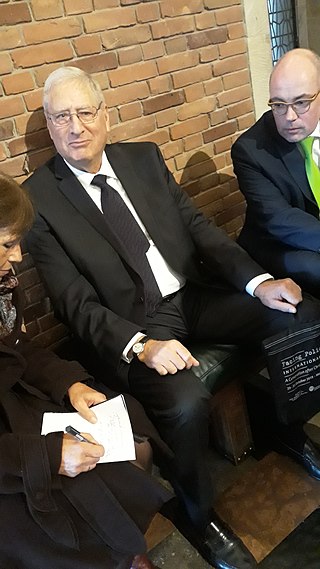
Christopher Robert Browning is an American historian who is the professor emeritus of history at the University of North Carolina at Chapel Hill (UNC). A specialist on the Holocaust, Browning is known for his work documenting the Final Solution, the behavior of those implementing Nazi policies, and the use of survivor testimony. He is the author of nine books, including Ordinary Men (1992) and The Origins of the Final Solution (2004).

Adolf Hitler was an Austrian-born German politician who was dictator of Germany from 1933 until his death in 1945. He rose to power as the leader of the Nazi Party, becoming the chancellor in 1933 and then taking the title of Führer und Reichskanzler in 1934. During his dictatorship, he initiated World War II in Europe by invading Poland on 1 September 1939. He was closely involved in military operations throughout the war and was central to the perpetration of the Holocaust: the genocide of about six million Jews and millions of other victims.

This bibliography of Adolf Hitler is an English only non-fiction bibliography. There are thousands of books written about Hitler; therefore, this is not an all-inclusive list. The list has been segregated into groups to make the list more manageable.
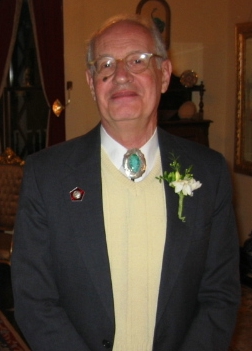
Gerhard Ludwig Weinberg is a German-born American diplomatic and military historian noted for his studies in the history of Nazi Germany and World War II. Weinberg is the William Rand Kenan, Jr. Professor Emeritus of History at the University of North Carolina at Chapel Hill. He has been a member of the history faculty at UNC-Chapel Hill since 1974. Previously he served on the faculties of the University of Michigan (1959–1974) and the University of Kentucky (1957–1959).

Martin Kitchen is a British-Canadian historian, who has specialized in modern European history, with an emphasis on Germany. He is internationally regarded as a key author for the study of contemporary history.
Geoffrey Roberts is a British historian of World War II working at University College Cork. He specializes in Soviet diplomatic and military history of World War II. He was professor of modern history at University College Cork (UCC) in Ireland and head of the School of History at UCC.
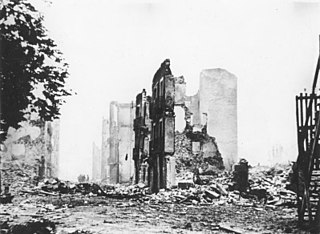
German involvement in the Spanish Civil War commenced with the outbreak of war in July 1936, with Adolf Hitler immediately sending in powerful air and armored units to assist General Francisco Franco and his Nationalist forces. The Soviet Union sent in smaller forces but a lot of modern weapons to assist the Republican government, while Britain and France and two dozen other countries set up an embargo on any munitions or soldiers into Spain. Nazi Germany also signed the embargo but simply ignored it.

The Italian occupation of Majorca lasted throughout the Spanish Civil War. Italy intervened in the war with the intention of annexing the Balearic Islands and Ceuta and creating a client state in Spain. The Italians sought to control the Balearic Islands because of their strategic position, from which they could disrupt lines of communication between France and its North African colonies, and between British Gibraltar and Malta. Italian flags were flown over the island. Italian forces dominated Majorca, with Italians openly manning the airfields at Alcúdia and Palma, as well as Italian warships being based in the harbour of Palma.
Heinz A. Richter is a German historian, known for his work on the history of World War II in the Balkans, the history of modern Greece and the modern history of Cyprus.
Ronald Smelser is an American historian, author, and former professor of history at the University of Utah. He specializes in modern European history, including the history of Nazi Germany and the Holocaust, and has written several books on these topics. Smelser is the author, together with fellow historian Edward J. Davies, of the 2008 book The Myth of the Eastern Front: The Nazi-Soviet War in American Popular Culture.
Robert Hamlett Bremner (1917-2002) was professor emeritus of history at the Ohio State University in Columbus, Ohio where he taught from 1946 until he retired in 1980. He is the author of American Philanthropy (1960) which was republished in a revised edition in 1988, The Public Good: Philanthropy and Welfare in the Civil War Period in 1980, and 'Giving: Charity and Philanthropy in History in 1996.
Johannes Bernhard von Welczeck was a Nazi German diplomat who served as the last German ambassador to France before World War II.
References
- ↑ "Bulletin". Association for Spanish and Portuguese Historical Studies. 2009. Retrieved 2010-01-05.
2009 VOL. XXXIV NO. 1 -- Robert Whealey's Encounters, 1938-2008, with People and Archives Concerned with the Spanish Civil War, 1936-1939
- ↑ "The European Union: for Good or for Ill?". Ohio University. February 25, 2003. Retrieved 2010-01-05.
Robert H. Whealey, History: Specialty: Hitler and Spain -- Category Archives: 2003 (panelist)
- ↑ Whealey, Robert H. (1999). "Nazi Propagandist Joseph Goebbels Looks at the Spanish Civil War". The Historian. Wiley Online Library. 61 (2): 341–360. doi:10.1111/j.1540-6563.1999.tb01030.x.
Volume 61, Issue 2, pages 341–360, December 1999 The Historian, Robert H. Whealey
- ↑ "... good books available on the Spanish Civil War". The Historum. 2010-01-05. Retrieved 2010-01-05.
Robert H. Whealey, Hitler and Spain: The Nazi Role in the Spanish Civil War, 1936-1939.
- ↑ Robert Whealey (September 2, 2010). "... Don't ignore history & facts". The Athens News. Retrieved 2010-01-05.
Robert Whealey of Athens is an associate professor emeritus of history at Ohio University.
- ↑ Whealey, Robert H. (October 1997). "Critique of NATO's Expansion". Origins: Current Events in Historical Perspective.